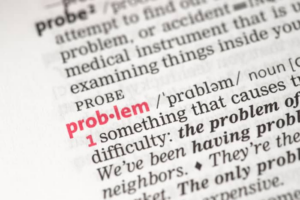Using coaching skills when managing stakeholders—whether they are colleagues, clients, partners, or suppliers—can transform interactions from transactional exchanges into meaningful conversations. This blog will explore how coaching skills can lead to better stakeholder engagement and share practical insights into core competencies like building trust, active listening, and asking powerful questions.
When we think of coaching, our minds often jump to leadership or professional coaching sessions, guided by certified coaches or executive coaches. While this is certainly one powerful aspect of coaching, its true potential extends far beyond formal coaching arrangements. Coaching is not just for managers or leaders. Instead, it’s a versatile skillset that can empower professionals at any level to build stronger relationships, navigate complex stakeholder dynamics, and ultimately enhance collaboration within and outside an organization.
Coaching Skills: More Than Leadership Coaching
At its core, coaching is about facilitating growth, awareness, and self-directed solutions in others. While leadership coaching often focuses on personal development and performance improvement, coaching as a skill transcends roles and hierarchies. It equips every individual—regardless of title or position—with the ability to manage stakeholders:
- Foster more collaborative relationships with stakeholders.
- Navigate conflicts with curiosity and understanding instead of judgment.
- Encourage meaningful dialogue rather than unilateral communication.
Let’s debunk the myth that coaching skills are reserved exclusively for managers or formal one-on-one coaching situations. Whether you are a project team member working with a vendor, a junior colleague seeking buy-in from a senior executive, or an entrepreneur negotiating with a prospective partner, coaching principles can help you connect and collaborate effectively.
Key Benefits of Using Coaching Skills for Stakeholder Management
By integrating coaching into your approach of managing stakeholders, you can unlock several benefits:
- Stronger Relationships – Coaching fosters an atmosphere of trust by emphasizing empathy, respect, and mutual understanding. Stakeholders are more likely to collaborate with someone who demonstrates these qualities consistently.
- Improved Communication – Using coaching techniques like active listening and asking reflective questions makes communication more impactful. It ensures all parties feel heard and valued, reducing misunderstandings.
- Increased Awareness and Ownership – Asking powerful, open-ended questions helps stakeholders reflect on their perspectives, challenges, or pain points. This promotes awareness and encourages them to take ownership of solutions.
- Resolving Conflicts Effectively – Coaching shifts conversations from blame or defensiveness to curiosity and shared problem-solving. It replaces reactive patterns with constructive dialogue.
- Driving Better Outcomes – Stakeholders who feel genuinely engaged are more likely to commit to shared goals, driving better overall results.
Key Coaching Competencies for Stakeholder Engagement
Several core coaching competencies aligned to International Coaching Federation (ICF) can be applied directly when managing stakeholders:
 1. Building Trust and Setting the Foundation
1. Building Trust and Setting the Foundation
Trust is the cornerstone of any productive relationship. From a coaching perspective, trust is built by creating a safe, judgment-free environment for stakeholders. This could mean consistently following through on commitments, showing empathy, and respecting diverse viewpoints.
Practical Example:
Consider a colleague who is resistant to a proposed project change. Instead of jumping into persuasion, start by empathizing: “I can see this change feels challenging for you. Can we explore what specific concerns you have around it?” This opens a space for them to voice their concerns without fear of reprimand while laying the groundwork for resolving the issue.
2. Active Listening
Active listening requires being fully present in a conversation. It’s about listening to understand, not just to respond. Key techniques include clarifying, paraphrasing what’s been said, avoiding interruptions, and paying attention to non-verbal cues like tone or body language.
Practical Example:
During a meeting with a vendor, you notice hesitation in their tone while discussing a delayed timeline. Instead of dismissing their response, take a moment to acknowledge it: “I noticed you paused there. Could you share your thoughts about the new deadline?” This allows the stakeholder to openly express concerns that may have otherwise been overlooked.
3. Asking Powerful Questions
Asking open-ended, thought-provoking questions encourages stakeholders to reflect and explore solutions. These questions help uncover deeper insights and foster collaboration. Avoid leading questions and instead focus on neutral, curiosity-driven ones.
Practical Example:
When a team member suggests a solution that may seem impractical, instead of dismissing it, ask: “What impact do you think this approach could have long-term? What are some areas where we might need to adjust?” Such questions encourage critical thinking and reduce defensiveness.
4. Evoking Awareness
Coaching emphasizes helping others discover their insights rather than imposing solutions. As a stakeholder manager, your role becomes one of guiding others toward clarity, whether that’s about the root of a problem or the potential consequences of a decision.
Practical Example:
During a quarterly review with a reluctant department head, you highlight patterns they may not have noticed: “It seems like you’re consistently mentioning limited resources as a challenge over the past few months. How do you think this is impacting our goals, and what could we do differently to address it?”
Case Scenarios: Coaching Skills at Work in Managing Stakeholders
Scenario 1: Managing Up
A junior team member needs approval from a senior executive for a project that requires additional funding. Applying coaching skills, they focus on listening to the executive’s concerns: “What would success look like if you were to approve this additional funding?” This approach builds alignment rather than creating tension.
 Scenario 2: Vendor Collaboration
Scenario 2: Vendor Collaboration
Midway through a critical project, a vendor is unable to meet an agreed timeline. Using coaching skills, the project lead initiates a collaborative dialogue by asking: “What challenges are you currently facing in meeting this deadline? How can we support you to get back on track?” This shifts the focus from blame to problem-solving.
Scenario 3: Cross-Department Teamwork
A marketing team is struggling to work cohesively with IT. Instead of dictating terms, coaching principles are applied to facilitate a meeting where both teams share their priorities and challenges. Questions like, “What are critical outcomes for your team, and where do you see potential overlaps with us?” help unveil common ground.
Bringing Coaching Skills into Your Own Toolkit
The good news is that coaching skills can be learned and practised by anyone. Start small:
- Make an effort to truly listen during your next meeting without interjecting.
- Experiment with asking open-ended “what” or “how” questions.
- Observe how building trust and rapport can transform your conversations.
When used consistently, coaching competencies will enhance your relationships with colleagues, clients, and any other stakeholders you interact with. The result? A more collaborative, engaged, and harmonious work environment where individuals take ownership and thrive together.
Coaching is no longer limited to formal roles—it’s a universal skill for the modern workplace. Are you ready to embrace it to effectly manage stakeholders? Let’s start building stronger connections today.
To explore how you can build foundational coaching skills, check out the module “Coaching for Performance and Capability Development”. Discover how you can also leverage SkillsFuture funding to make your learning journey more affordable.
BP Coach Training Pte Ltd
22 February 2025
For more information please contact us or email us at info@bpcoachtrain.com.



